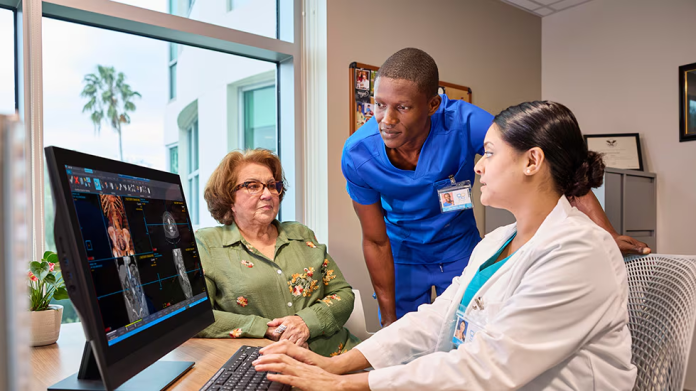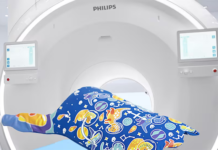
Royal Philips, a global leader in health technology, has announced the expansion of its cloud-based radiology informatics solutions to Europe, including exploring the use of generative AI to enhance radiology reporting. After the successful migration of over 150 sites in North and Latin America to HealthSuite Imaging on Amazon Web Services (AWS), Philips will offer these innovative cloud services across Europe.
Philips HealthSuite Imaging is a comprehensive cloud-based solution for radiology departments, managed by Philips and hosted on AWS. As a pure software-as-a-service model (SaaS), it includes regular upgrades, security patches and compliance checks, enabling healthcare institutions to secure their data, while allowing clinicians to access the latest innovations from any location.
Within three years, 95% of healthcare providers plan to migrate over half of their applications to the cloud. With radiology exams available in the cloud, clinicians have secure, anytime, anywhere access to imaging studies and AI-enabled clinical and operational workflows, enhancing collaboration, speeding up clinical decisions, and improving patient care. In addition, remote access to scheduling, diagnostic reading and integrated reporting helps clinicians quickly adopt new capabilities, and healthcare organizations to improve operational efficiency and reduce IT management burdens.
“The availability of Philips’ cloud-based radiology solutions in Europe will be a game changer for healthcare providers, helping them to manage staff shortages, optimize workflows and drive better outcomes,” said Shez Partovi, business leader enterprise informatics at Philips. “The scalability and security of enterprise imaging in the cloud will enable radiology departments to benefit from the transformative power of generative AI and allow clinicians to focus on the most important aspect, bringing better care to more people.”
AI Innovations and Future Prospects
One of the key benefits of cloud-based services is faster access to future innovations. Philips is exploring generative AI capabilities as part of its innovation strategy, focusing, for example, on conversational reporting to help healthcare providers face increased clinical demands and workforce shortages. These AI applications may reduce administrative burdens and time-consuming repetitive tasks, helping clinicians focus their expertise where it matters most – in critical decision-making. Philips aims to create robust and scalable generative AI applications that leverage state-of-the-art foundation models from Amazon Bedrock and seamlessly integrate into clinical workflows.
“Ambient reporting in radiology is just the beginning of using large language models in reporting”, said Dr. JJ Visser, radiologist and CMIO at Erasmus Medical Center. “It’s not only about speed; with fewer distractions from the reporting tool, I can focus more on image details and produce higher-quality reports in less time. I anticipate even greater advancements in the coming years.”








